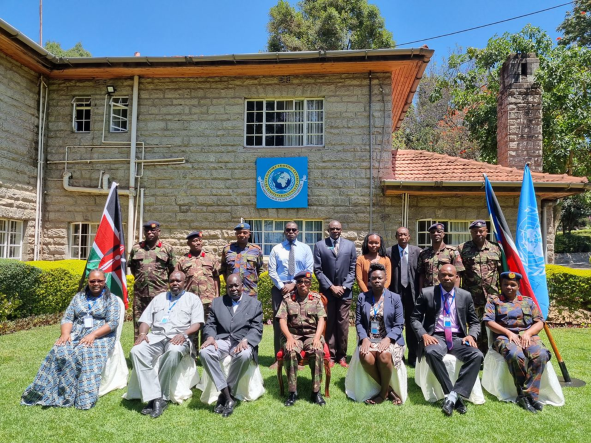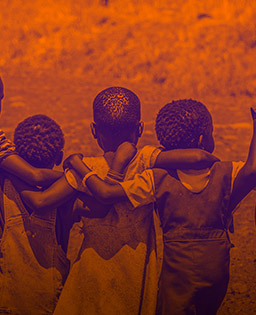
From Left to right seated: Irene Limo UNDP Peacebuilding analyst, Hon. Jamal Kakaya chair of South Sudan legislative assembly peacebuilding, Hon. Chuol Rambang chair of South Sudan CEWERU, Brigadier Joyce Sitienei Head of the International Peace Support Training Center, Stella Konga South Sudan CEWERU, Joseph Kido the director of peacebuilding at the South Sudan Ministry of Peacebuilding. Photo Credit: IPSTC Kenya.
Conflict is still rampant across South Sudan despite gains made from the signing of the Revitalized Agreement on Resolution of Conflict in South Sudan (R-ARCISS) in 2018. Conflicts at the subnational level have particularly impacted national stability and communities’ abilities to return to normal. Ethnic violence and gender-based violence are some of the major drivers of conflicts at the sub-national level.
South Sudan’s conflict at the sub-national levels is driven by large-scale communal wars over cattle, land, and child abduction. Patriarchal practices remain deeply embedded in communities and as a result, about 65 percent of women experience some form of sexual and gender-based violence (SGBV) such as child marriage and rape in their lifetime. Conflict continues to ravage parts of the country, and this is made worse by the floods and the Covid-19 pandemic that have compounded the challenges of returning to stability.
South Sudan Peace and Reconciliation Commission (SSPRC) with support from UNDP is working to revitalize the Conflict Early and Early Response (CEWERU), a mechanism for arresting conflicts before they escalate into blown wars with a severe toll on human lives and property. CEWERU also addresses the root causes of conflicts through peacebuilding and reconciliation efforts at the grassroots levels.
In line with the ongoing efforts to address conflict challenges between communities, some of which have cross-border implications, a high-level delegation from the South Sudan Peace and Reconciliation Commission and the Ministry of Peacebuilding with support from UNDP conducted a study tour visit to key Kenyan peacebuilding and early warning institutions to exchange knowledge and learn from practices there to strengthen CEWERU in its mandates.
Led by SSPRC chairperson Hon. Chuol Rambang, the delegation also included the chairperson of the specialized committee on peacebuilding in the national legislative assembly Hon. Jamal Juma, director for peacebuilding at the ministry of peacebuilding Mr. Joseph Kido, and the Executive Director for Enterprise South Sudan Ms. Stella Konga who is a member of the South Sudan CEWERU National Steering Committee.
The visit which lasted five days included a meeting with the head of the National Cohesion and Integration Commission of Kenya (NCIC) Rev Dr. Samuel Kobia on the 11th of October in which the delegation learned from the community cohesion initiatives implemented to bring ethnic Kenyan communities together after the violent post-electoral conflict of 2007 among other peacebuilding success stories.
On the 12th of October, the delegation visited the held a meeting with the team at the International Peace Support Training Center (IPSTC) headed by Brigadier Sitienei where talks focused on enhancing the work capacity of SSPRC and CEWERU aimed at addressing conflicts, promoting national reconciliation, and healing and conduct of continuous research for peacebuilding. The meeting also discussed opportunities for synergy and future collaboration between the two institutions.
Choose the Best Path for South Sudan to Consolidate Peace
During a meeting with the Fellowship of Christian Councils and Churches in the Great Lakes, which was chaired by the chairperson of the Inter-Religious Council of Kenya (IRCK) Rev. Fr. Joseph Mutie, the delegation was advised that peace can only be consolidated in South Sudan if parties to the conflict choose the best path for the country, not for their own interests. According to Rev. Fr. Mutie, to achieve this South Sudanese leaders must;
“choose the best life as South Sudanese and forget the past and shift from post-conflict”.
Women and Youth in Peacebuilding
The delegation met with the Kenya CEWERU National Steering Committee headed by program manager Milka Chepkiriu on October 14th. Discussions centered on strengthening the capacity of South Sudan CEWERU in the areas of gathering early warning information for conflict prevention, increased participation of critical groups in peacebuilding including faith-based groups and leaders, and establishment of civil society networks for early response among others.
The meeting discussed the importance of women and youth in peacebuilding and the importance of engagement of youth and women in peacebuilding processes. The meeting at the Kenyan CEWERU explored opportunities for mediation by women and youth in conflict management and peacebuilding and the roles of women and youth in peace processes. The meeting ended with recommendations on enhancing the participation and effectiveness of young people especially women in peace processes.


